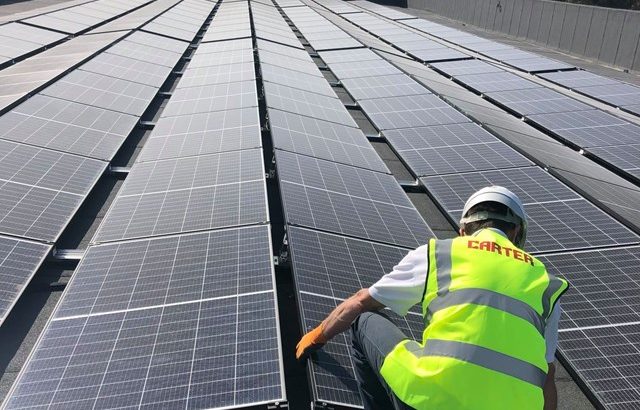West Suffolk Council says they want to “pick up the pace and do more with residents and businesses” to reduce carbon emissions and tackle climate change.
The proposals which will be heard at Cabinet on 19 September include a range of initiatives to help people and businesses do more, save money and reduce the council’s own impact on the environment.
Cabinet will also hear proposals for a £1million decarbonisation fund to support third-party organisations to reduce their net power consumption.
It follows a report which showed that while the Council was on track to meet its commitment to be Carbon Neutral by 2030 it needed to accelerate schemes to stay on target.
One of the priorities of the new administration was finding ways to support communities and businesses to help be more environmentally friendly. This was in recognition that tackling climate change could not be done by one organisation alone but that everyone has a part to play.
The recommendations have been made by a working party set up immediately after the elections to review the council’s climate change action plan and make proposals on a change of pace.
Cllr Cliff Waterman, Leader of the council said: “These proposals represent a real speeding up of our work to get on with the job of fighting climate change. This crisis affects all of us and needs everyone to play their part. The working party produced a comprehensive action plan designed to make meaningful changes that communities, businesses and partners can take part in. The group themselves set us all an example, by working in new ways to reduce their own emissions and have made proposals for additional initiatives the council can deliver. Where we can, we will also look to deliver initiatives or pilots where traditionally it would not be our responsibility. We all feel frustrated about having to wait for the long overdue government legislation to be brought in to allow us to reduce waste and improve recycling. So, I’m pleased to see a proposal to pilot a reverse vending machine where bottles and other containers can be taken for recycling in return for a small reward. In addition, we are proposing to work with third party organisations to support decarbonisation projects with a fund they can apply for which will help reduce their power use and find savings.”
Cabinet is due to take the report to be agreed by all West Suffolk councillors at full Council on Tuesday 26 September.
The recommendations include a new action plan building on the consistent progress being made towards carbon net zero on the council’s own activities and highlights some specific opportunities:
- Businesses to be supported to meet the challenge of increasing utility costs and reduce carbon emissions through a business plan to increase the scope of the Solar for Business scheme which installs fully funded PV systems on organisations’ roofs.
- Residents are to be supported with:
o Housing to be helped to become more energy efficient by ensuring the Housing Strategy addresses environmental performance, by investigating further support for the current Warm Homes Suffolk scheme and by using the opportunities in the emerging Local Plan to enhance the performance of new homes, including a minimum biodiversity net gain.
o Communications campaigns to engage effort on reducing waste, increasing recycling of what waste is left, promoting local food production and increasing biodiversity.
- The council’s activities will come under tighter environmental focus. Decisions councillors are asked to make will be assessed for environmental impact, and paperless working and the use of virtual or hybrid meeting will continue.
The council’s leading role in renewable energy would be expanded to investigate opportunities in wind and hydrogen energy sources.
At the same Cabinet meeting, a proposal to establish a Decarbonisation Initiatives Fund to support communities and third-parties reduce their net power consumption will be considered.
The first call on this fund would then be for parish and town councils to upgrade their remaining streetlights to LED in order to obtain the environmental benefits.

